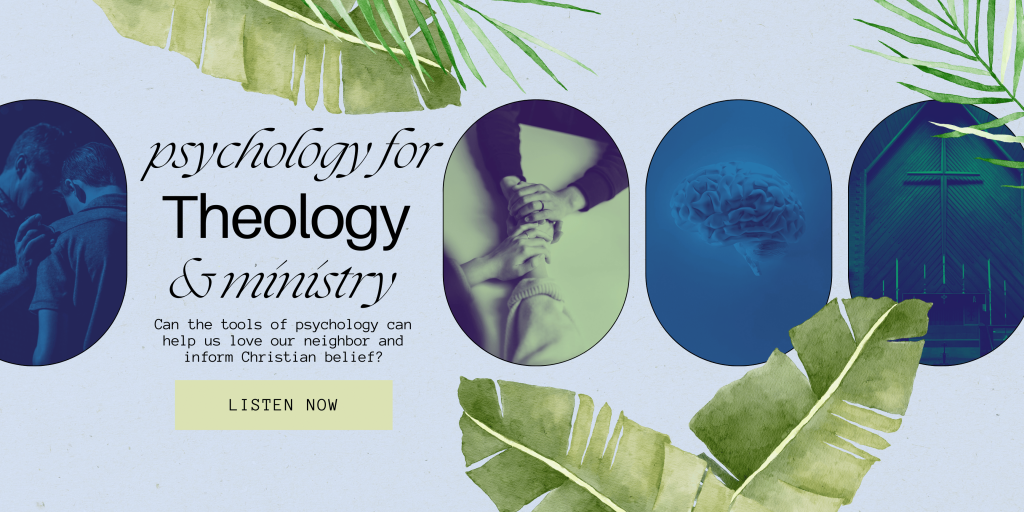
This year, we noticed that students of our TheoPsych classes had some questions. Many of these questions had really practical implications: Can insights from social psychology help us run church meetings better? How do I know if I should see a therapist or talk to my pastor? Is there such a thing as “thriving” amid a severe mental illness?
We’re thankful that our community is thinking about things like this, and we hope that these 8 episodes will help prompt more conversation in the church about these important issues.
Download the FREE companion workbook.
Listen on*:
*The series is available wherever you enjoy listening to podcasts; just search “Blueprint 1543.”
About Our Guests

We’re excited to introduce you to some people who are truly passionate about integration. They live rich lives, where the way they steward their lives is free to draw on tools from psychological science. At the same time, their work is deeply theologically informed. This kind of seamless living is the gold standard at Blueprint 1543 – it’s just the sort of thing we’re trying to foster.
But you don’t need multiple PhDs to live this way…
Kutter Callaway got two PhDs (in theology and psychology) so that you didn’t have to! And you can hear him reflect both personally and psychologically about when scandal infects your home church. He also, teaches theologians at Fuller Seminary how to write a letter to their body (what?!).
Speaking of having a body, what does it mean that the “body keeps the score” when it comes to trauma? Preston Hill has some much to contribute to this conversation, as a trauma-informed theologian, and has great thoughts on how to create “trauma-safe churches.”

Psychologist Laird Edman wants churches to be more mindful about how they use ritual practices (even those that think they don’t have any). He wants to remind us that it’s these small, regular practices that guide the character of our faith communities. And then there’s Tyler Greenway, a social psychologist with an MDiv, who wants to show how psych science can help Christians develop the virtues that are supposed to characterize followers of Jesus.
Pam King wants to help people connect with their sense of purpose so they can thrive no matter what their circumstances. She explains how following joy is a great tool God gave us to get there. But when things aren’t going great, and you feel stuck, who should Christians turn to for help? Lindsey Root Luna is both a clinical and research psychologist, who loves using scientific ways of knowing to offer a lifeline to people in that position. She helps us think through how pastors and church leader can work together with psychology professionals to support people.
Erin Smith is a developmental psychologist who just took an important leadership role at her university. We talk to her about dismantling the sacred/secular divide, and about finding God in everyday life. As a Quaker and psychologist, Mark McMinn feels this is important too. Mark talks about how slowing down can help us get in touch with our humanity as God intended us to live.
This project was made possible through the support of a grant from the John Templeton Foundation. The opinions expressed are those of the speakers and do not necessarily reflect the views of the John Templeton Foundation.

